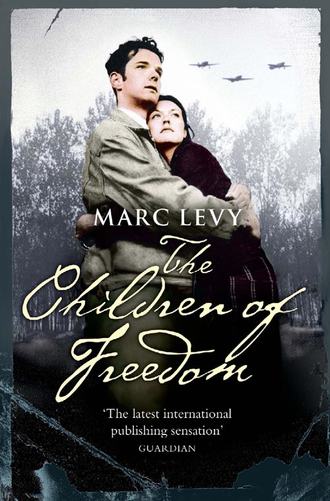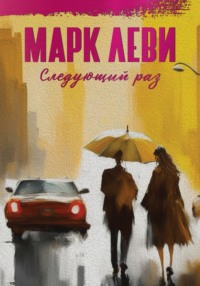
Полная версия
The Children of Freedom
While Maître Arnal walks down the Palais’ long corridor, Marcel, handcuffed to a gendarme, waits in a small office.
The trial takes place in camera. Marcel is in the dock, Lespinasse stands up and doesn’t even glance at him; he scorns the man he wants to convict, and the last thing he wants is to get to know him. A few scant notes lie in front of him. First, he pays homage to the gendarmerie’s perspicacity, which ensured that a dangerous terrorist was prevented from doing harm, and then he reminds the court of its duty, that of observing the law and seeing that it is respected. Pointing at the man on trial without once looking at him, Deputy Prosecutor Lespinasse voices his accusations. He enumerates the long list of murder attempts the Germans have suffered, and he recalls also that France signed the armistice in honour and that the accused, who is not even French, has no right to call the State’s authority into question again. To grant him extenuating circumstances would be tantamount to scorning the Marshal’s word. ‘The reason the Marshal signed the armistice was for the good of the Nation,’ Lespinasse continues, with vehemence. ‘And a foreign terrorist has no right to judge to the contrary.’
Finally, to add a little humour, he reminds the court that Marcel Langer was not carrying firecrackers for the fourteenth of July, but explosives destined to destroy German installations, and so disturb the citizens’ tran-quillity. Marcel smiles. The fireworks of the fourteenth of July are a long way away.
Should the defence put forward arguments of a patriotic nature, with the aim of granting Langer extenuating circumstances, Lespinasse again reminds the court that the defendant is a stateless person, that he chose to abandon his wife and little girl in Spain, where he had previously gone to fight, although he was Polish and a stranger to the conflict. That France, in its indulgence, had welcomed him in, but not to come here, to our homeland, bringing disorder and chaos. ‘How can a man without a homeland claim to have acted according to a patriotic ideal?’ And Lespinasse sniggers at his own witticism, his turn of phrase. Fearing that the court may be afflicted with amnesia, he reminds them of the act of accusation, lists the laws that sentence such acts to capital punishment, and congratulates himself on the severity of the laws in force. Then he pauses for a moment, turns towards the man he is accusing and finally consents to look at him. ‘You are a foreigner, a Communist and a partisan, three separate reasons, each of which is sufficient for me to ask the court for your head.’ This time, he turns away towards the magistrates and in a calm voice demands that Marcel Langer should be sentenced to death.
Maître Arnal is white-faced. He stands up at the same moment as the smug Lespinasse sits down. The old lawyer’s eyes are half-closed, his chin tilted forward, his hands clenched in front of his mouth. The court is motionless, silent; the clerk barely dares lay down his pen. Even the gendarmes are holding their breath, waiting for him to speak. But for the moment, Maître Arnal cannot say anything, overcome as he is with nausea.
He is therefore the last person here to realise that the rules have been rigged, that the decision has already been taken. And yet, in his cell, Langer had told him he knew that he was condemned in advance. But the old lawyer still believed in justice and had kept on assuring him that he was wrong, that he would defend him as he should and that the judgment would be in his favour. Behind him, Maître Arnal feels Marcel’s presence, thinks he can hear him murmuring: ‘You see, I was right, but I don’t blame you, in any case, you couldn’t do anything.’
So he raises his arms, his sleeves seeming to float in the air, breathes in and launches into a final speech for the defence. How can the gendarmerie’s work be praised, when the defendant’s face bears the stigmata of the violence he has suffered? How can anyone dare to joke about the fourteenth of July in this France that no longer has the right to celebrate it? And what does the prosecutor really know about these foreigners whom he accuses?
As he got to know Langer in the visiting room, he was able to find out how much these stateless individuals, as Lespinasse calls them, love this country that has welcomed them in even to the point where, like Marcel Langer, they will sacrifice their lives to defend it. The accused is not the man the prosecutor depicts. He is a sincere and honest man, a father who loves his wife and his daughter. He did not leave Spain to join the fighting, but because, more than all, he loves humanity and human freedom. Yesterday, wasn’t France still the land of human right? Sentencing Marcel Langer to death means sentencing the hope for a better world.
Arnal’s plea lasted more than an hour, using up his last reserves of strength; but his voice rings out without an echo in this court that has already given its verdict. Today, 11 June 1943, is a sad day. The sentence has been pronounced, and Marcel will be sent to the guillotine. When Catherine hears the news in Arnal’s office, her lips purse tightly and she takes the blow. The lawyer swears that he has not finished, that he will go to Vichy to plead for clemency.
That evening, in the little disused railway station that serves Charles as lodgings and a workshop, the table has grown. Since Marcel’s arrest, Jan has taken command of the brigade. Catherine sat down next to him. From the look they exchanged, I knew this time that they loved each other. And yet the look in Catherine’s eyes is sad, and her lips can barely utter the words she has to tell us. She is the one who announces to us that Marcel has been sentenced to death by a French prosecutor. I don’t know Marcel, but like all the comrades around the table, I have a heavy heart and as for my little brother, he has completely lost his appetite.
Jan paces up and down. Everyone is silent, waiting for him to speak.
‘If they carry it out, we shall have to kill Lespinasse, to scare the hell out of them; otherwise, these scum will sentence to death all the partisans who fall into their hands.’
‘While Arnal is lodging his plea for clemency, we can prepare for the operation,’ continues Jacques.
‘It will take a lot more time,’ mutters Charles in his strange language.
‘And in the meantime, aren’t we going to do anything?’ cuts in Catherine, who is the only one who’s understood what he was saying.
Jan thinks and continues to pace up and down the room.
‘We must act now. Since they have condemned Marcel to death, let’s condemn one of their people too. Tomorrow, we’ll take down a German officer right in the middle of the street and we’ll distribute a tract to explain why we did it.’
I certainly don’t have much experience of political operations, but an idea is going around in my head and I venture to speak.
‘If we really want to scare the hell out of them, it would be even better to drop the tracts first, and take down the German officer afterwards.’
‘And that way they’ll all be on their guard. Have you got any more ideas like that?’ argues Emile, who seems decidedly mad at me.
‘My idea’s not bad, not if the operations are a few minutes apart and carried out in good order. Let me explain. If we kill the Boche first and drop the tracts afterwards, we’ll look like cowards. In the eyes of the population, Marcel was judged first and only then sentenced.
‘I doubt that La Dépêche will report on the arbitrary condemnation of a heroic partisan. They’ll announce that a terrorist has been sentenced by a court. So let’s play by their rules; the town must be with us, not against us.’
Emile wanted to shut me up, but Jan signalled to him to let me speak. My reasoning was logical, I just needed to find the right words to explain to my friends what I had in mind.
‘First thing tomorrow morning, we should print a communiqué announcing that as a reprisal for Marcel Langer’s death penalty, the Resistance has condemned a German officer to death. We should also announce that the sentence will be applied that very afternoon. I will take care of the officer, and – at the same moment – you will drop the tract everywhere. People will become aware of it immediately, while news of the operation will take a lot of time to spread through the town. The newspapers won’t talk about it until tomorrow’s edition, and the right chronology of events will appear to have been respected.’
One by one, Jan consults the members seated at the table, and eventually his eyes meet mine. I know that he agrees with my reasoning, except perhaps for one detail: he raised an eyebrow slightly at the moment when I mentioned in passing that I would kill the German myself.
In any event, if he hesitates too much, I have an irrefutable argument; after all, the idea is mine, and besides, I stole my bicycle, so I’ve complied with the rules of the brigade.
Jan looks at Emile, Alonso, Robert and then Catherine, who agrees with a nod. Charles has missed none of the scene. He stands up, heads for the cupboard under the stairs and comes back with a shoe box. He hands me a barrel revolver.
‘Be better if you and brother here sleep tonight.’
Jan approaches me.
‘Right, you’ll fire the gun; Spaniard,’ he said, designating Alonso, ‘you will be the lookout; and you, young one, you’ll hold the bicycle in the direction of the getaway.’
There. Of course, said like that it’s quite anodyne, except that Jan and Catherine went away again into the night, and I now had a pistol in my hand, with six bullets, and my cretin of a little brother who wanted to know how it worked. Alonso leant over towards me and asked me how Jan knew that he was Spanish, when he hadn’t said a word all evening. ‘And how did he know that the shooter would be me?’ I told him with a shrug of my shoulders. I hadn’t answered him, but my friend’s silence testified that my question must have gained the upper hand over his.
That night, we slept for the first time in Charles’s dining room. I lay down completely knackered, but never-theless with a massive weight on my chest; first my little brother’s head – he’d acquired the bloody awful habit of sleeping pressed up against me since we were separated from our parents – and, worse still, the pistol in the left pocket of my jacket. Even though there weren’t any bullets in it, I was afraid that in my sleep, it might blow a hole in my little brother’s head.
As soon as everyone was properly asleep, I got up on my tiptoes and went out into the garden behind the house. Charles had a dog, which was as gentle as it was stupid.
I’m thinking of it because that night, I had a desperate need for its spaniel muzzle. I sat down on the chair under the washing line, I looked at the sky and I took the gun out of my pocket. The dog came to sniff at the barrel, and I stroked its head, telling it that it would definitely be the only one in my lifetime allowed to sniff the barrel of my weapon. I said that because at that moment I really needed to put on a bold front.
One late afternoon, by stealing two bikes, I had entered the Resistance, and it’s only now, hearing my little brother, snoring like a child with a blocked nose, that I really realised it. Jeannot, Marcel Langer brigade; during the months to come, I was going to blow up trains, electricity pylons, sabotage engines and the wings of aircraft.
I belonged to a band of partisans that was the only one to have succeeded in bringing down German bombers…on bicycles.
4
It’s Boris who wakes us. Dawn has scarcely broken and cramps are gnawing my insides but I mustn’t hear its complaint; we won’t be having any breakfast. And I have a mission to fulfil. It is perhaps fear, rather than hunger, that ties my stomach into knots. Boris takes his place at the table, Charles is already at work; the red bicycle is transformed before my eyes. It has lost its leather grips; they are now mismatched – one is red, one blue. Too bad for its elegance, I see reason; the important thing is that nobody recognises the stolen bikes. While Charles is checking the derailleur mechanism, Boris beckons me over to join him.
‘The plans have changed,’ he says. ‘Jan doesn’t want all three of you to go out. You’re novices and, if something bad happens, he wants an old hand to be there as a reinforcement.’
I don’t know if that means the brigade doesn’t yet trust me sufficiently. So I say nothing and let Boris speak.
‘Your brother will stay here. I’m the one who’ll accompany you, and ensure you get away. Now listen to me carefully; this is how things must happen. There is a method for bringing down an enemy, and it’s very important that you respect it to the letter. Are you listening?’
I nod. Boris must have noticed that for the space of an instant my mind is elsewhere. I’m thinking about my little brother; he’s going to sulk when he finds out he’s been sidelined. And I can’t even admit to him that it relieves me to know that, this morning, his life won’t be in danger.
The thing that doubly reassures me is that Boris is a third-year medical student, so if I’m wounded in the operation he may be able to save me, even if that’s completely idiotic, because, in an operation, the greatest risk isn’t being wounded but quite simply being arrested or killed, which in the end comes to the same thing in most cases.
All that being said, I must admit that Boris wasn’t wrong. My mind was perhaps slightly elsewhere while he was speaking; but to be honest, I’ve always had an annoying penchant for daydreaming; at school, my teachers said I had a ‘distracted’ nature. That was before the head of the school sent me home on the day I turned up for the baccalaureate examinations. With my name, it really wasn’t possible to take the diploma.
Right, I’m focused now on the operation to come; if not, at best I’m going to be ticked off by comrade Boris, who is taking the trouble to explain how things are going to proceed, and at worst, he’ll remove me from the mission for not paying attention.
‘Are you listening to me?’ he says.
‘Yes, yes, of course!’
‘As soon as we’ve spotted our target, you will check that the revolver’s safety catch is definitely off. We’ve already seen friends have serious disappointments by thinking that their weapon was jammed, when they’d stupidly forgotten to take off the security catch.’
I did indeed think that this was idiotic, but when you’re afraid, really afraid, you’re much less skilful; do believe what I say. The important thing was not to interrupt Boris and to concentrate on what he was saying.
‘It must be an officer, we don’t kill ordinary soldiers. Did you get that? We’ll follow him at a distance, neither too close, nor too far. I will deal with the neighbouring perimeter. You approach the guy, you empty your magazine and you count the shots carefully so that you have one bullet left. That’s very important for the getaway – you could need it, you never know. I will be covering the getaway. You think only of pedalling. If people try to step in front of you, I’ll intervene to protect you. Whatever happens, don’t turn back. You pedal and you pedal hard, do you understand me?’
I tried to say yes, but my mouth was so dry that my tongue was stuck to it. Boris concluded that I was in agreement and went on.
‘When you’re quite a long way away, slow down and mess around like any lad on a bike. Except you’re going to ride around for a long time. If anyone has followed you, you must be aware of it and never run the risk of leading him to your address. Go around the docks, and stop frequently, to check if you recognise a face you’ve encountered more than once. Don’t trust coincidences; in our lives there never are any. If you’re certain that you’re safe, and only then, you can head back.
I had lost all desire to be distracted and I knew my lesson by heart, well almost: the one thing I didn’t know at all was how to shoot at a man.
Charles came back from his workshop with my bicycle, which had undergone some serious transformations. The important thing, he said, is that the pedals and chain were reliable. Boris signalled to me that it was time to leave. Claude was still sleeping. I wondered if I ought to wake him. In the event that something happened to me, he might sulk again because I hadn’t even said goodbye to him before I died. But I decided to leave him sleeping; when he awoke, he would be famished, with nothing to eat. Each hour of sleep was the same amount of time gained over the gnawing pangs of hunger. I asked why Emile wasn’t coming with us. ‘Drop it!’ Boris muttered to me. Yesterday, Emile had had his bike stolen. That idiot had left it in the corridor of his apartment building without locking it up. It was all the more regrettable that it had been a rather fine model with leather grips, exactly like the one I’d nicked! While we were in action, he’d have to go and pinch another one. Boris added that Emile had hit the roof over the matter!
The mission proceeded as Boris had described. Well, almost. The Nazi officer we had spotted was coming down the ten steps of a street staircase, which led to a small square where a vespasienne sat imposingly. This was the name given to the green urinals that were found in the town. We called them cups, because of the shape. But as they had been invented by a Roman emperor who answered to the name of Vespasian, that’s what they’d been christened. In the end, I might perhaps have got my baccalaureate, if I hadn’t made the mistake of being Jewish during the June 1941 exams.
Boris signalled to me that the place was ideal. The little square was below the level of the street and there was no one around. I followed the German, who suspected nothing. To him, I was just someone with whom – although we looked different, with him in his impeccable green uniform and me rather shabbily turned out – he shared the same desire. As the vespasienne was equipped with two compartments, there was no reason for him to object to my walking down the same staircase as he was.
So I found myself in a urinal, in the company of a Nazi officer into whom I was going to empty my revolver (less one bullet, as Boris had specified). I had carefully taken off the security catch, when a real problem of conscience passed through my mind. Could one be a decent member of the Resistance, with all the nobility that represented, and kill a guy who had his flies undone and was in such an inglorious posture?
It was impossible to ask comrade Boris for his advice; he was waiting for me with the two bikes at the top of the steps, to ensure a safe getaway. I was alone and I had to make the decision.
I didn’t fire, it was inconceivable. I couldn’t accept the idea that the first enemy I was going to kill was in the middle of taking a piss as I carried out my heroic action. If I could have talked to Boris about it, he would probably have reminded me that the enemy in question belonged to an army that didn’t ask itself any questions when it shot children in the back of the neck, when it machine-gunned kids on the corners of our streets, and even less so when it was exterminating countless people in the death camps. And Boris wouldn’t have been wrong. But there you go, I dreamed of being a pilot in a Royal Air Force squadron; well, I might not have a plane, but my honour was safe. I waited until my officer had restored himself to a condition fit to be shot. I didn’t allow myself to be distracted by his sidelong smile when he left the urinal and he paid me no further attention when I followed him back to the staircase. The urinal was at the end of a blind alley, and there was only one exit from it.
In the absence of any shots, Boris must have been wondering what I was doing for all that time. But my officer was climbing the steps in front of me and I certainly wasn’t going to shoot him in the back. The only way of getting him to turn around was to call him, which wasn’t all that easy if one considers that my grasp of German was limited to two words: ja and nein. Which was unfortunate, since in a few seconds he would reach the street again and the whole thing would be a failure. Having taken all these risks to be found wanting at the last moment would have been too stupid. I filled my lungs and yelled Ja with all my strength. The officer must have realised that I was addressing him, because he immediately turned around and I took advantage of this to shoot five bullets into his chest, that is, face-on. What ensued was relatively faithful to the instructions Boris had given. I stuck the revolver in my trouser belt, burning myself in the process on the barrel, which had just fired five bullets at a speed that my level of mathematics didn’t enable me to estimate.
Once at the top of the staircase, I mounted my bike and lost my pistol, which slipped out of my belt. I put my feet on the ground to pick up my weapon but Boris’s voice shouting at me: ‘For God’s sake get the hell out of here!’ brought me back to the reality of the present moment. I pedalled at breakneck speed, weaving in between the passers-by, who were already running towards the place where the shots had come from.
As I pedalled, I thought constantly about the pistol I had lost. Weapons were rare in the brigade. Unlike the Maquis, we didn’t benefit from parachute drops from London; which was really unfair, for the Maquis members didn’t do a great deal with the boxes they were sent, apart from storing them in hiding places in preparation for a future Allied landing, which apparently wasn’t imminent. For us, the only means of procuring weapons was to get them from the enemy; in rare cases, by undertaking extremely dangerous missions. Not only had I not had the presence of mind to take the Mauser the officer was carrying in his belt, to make things worse, I’d lost my own revolver. I think I thought especially about that to try and forget that in the end, even though everything had happened the way Boris had said, I’d still just killed a man.
Someone knocked at the door. Claude was lying on the bed. His eyes fixed on the ceiling, he behaved as if he hadn’t heard anything; anyone would have thought he was listening to music, but since the room was silent I deduced from this that he was sulking.
As a security measure, Boris walked towards the window and gently lifted the curtain to glance outside. The street was quiet. I opened the door and let Robert in. His real name was Lorenzi, but among ourselves we were content to call him Robert; sometimes we also called him ‘Death-Cheater’ and this nickname was in no way pejorative. It was simply that Lorenzi had accumulated a certain number of qualities. First, his accuracy with a gun; it was unequalled. I wouldn’t have liked to find myself in Robert’s line of fire, since our comrade’s margin for error was in the region of zero. He had obtained permission from Jan to keep his revolver permanently on him, whereas we – because of the brigade’s shortage of weapons – had to give them back when the operation was over, so that someone else could have the benefit of them. However strange it may seem, everyone had their own weekly diary, containing, for example, a crane to be blown up on the canal, an army lorry to be set on fire somewhere, a train to be derailed, a garrison post to attack – the list is long. I shall take advantage of this to add that as the months passed, Jan imposed an ever-faster pace upon us. Rest days became rare, to the point where we were exhausted.
It’s generally said of trigger-happy types that they’re excitable, even to an excessive degree; it was quite the opposite with Robert – he was calm and level-headed. Much admired by the others, with a warm personality, he always had a friendly, comforting word, which was rare in those times. And also, Robert was someone who always brought back his men from a mission, so having him covering you was really reassuring.
One day, I would meet him in a bar on place Jeanne-d’Arc, where we often went to eat vetch, a vegetable that resembles lentils and which is given to livestock; we made do with the resemblance. It’s crazy what your imagination can dream up when you’re hungry.
Robert dined opposite Sophie and, from the way they were looking at each other I could have sworn that they too were in love. But I must have been wrong since Jan had said that partisans didn’t have the right to fall in love, because it was too dangerous for security. When I think back to the number of friends who, the night before their execution, must have hated themselves for respecting this rule, it makes me feel sick to my stomach.









